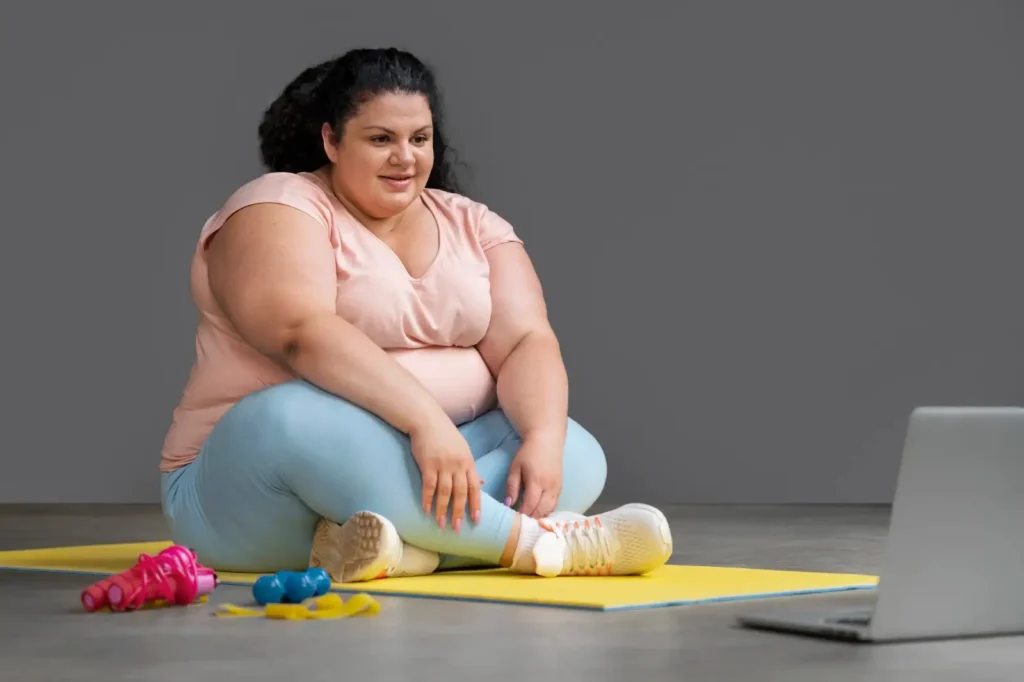Obesity is one of the most misunderstood health conditions out there. For many people, it’s more than just a number on the scale. It affects physical movement, mental health, and even the ability to earn a living. So here’s a question people are asking more and more: Can obesity qualify you for disability?
Let’s unpack the rules, realities, and requirements without the jargon.
Why Is This Even a Question?
Because in a world where hustle culture is everything, slowing down due to health feels like failure.
But guess what? It’s not. Obesity can create serious limitations. We’re talking joint problems, breathing issues, fatigue, diabetes, heart disease, depression, you name it. And when all of that gets in the way of working or living normally, it’s fair to ask if support is available.
That’s where disability benefits come in.
What Counts as a Disability (Legally)?

To answer can obesity qualifies you for disability, we need to look at what disability means under U.S. law.
According to the Social Security Administration (SSA), a disability is a physical or mental condition that:
- Prevents you from working full-time (called “substantial gainful activity”)
- Is expected to last at least 12 months or result in death
- Is backed by medical evidence and official documentation
The SSA has a “Blue Book” of impairments, which lists conditions that automatically qualify. Obesity isn’t on that list anymore, but that doesn’t mean it’s excluded.
It just means the process is more complex.
Can Obesity Qualify You for Disability?
Here’s the key:
Obesity by itself won’t usually get you disability benefits.
But when it leads to or worsens other serious conditions, it can help support your case.
The SSA recognizes that obesity can impact the musculoskeletal, respiratory, cardiovascular, and endocrine systems. The entire body.
Obesity may qualify you for disability if:
- It severely limits your physical activity (walking, standing, sitting, lifting)
- It worsens existing conditions (like arthritis, diabetes, or heart disease)
- It causes or worsens mental health issues like anxiety or depression
- It affects your ability to perform daily tasks, including basic job functions
- There’s strong medical documentation showing long-term impact
So yes, can obesity qualify you for disability? Yes, if it significantly affects your health and functioning.
Secondary Conditions That Strengthen Your Case
Obesity often comes with (or contributes to) other medical conditions that are easier to list on a disability claim. These include:
- Type 2 Diabetes, especially with complications like neuropathy or vision loss
- Heart Disease – high blood pressure, heart failure
- Sleep Apnea – a common but serious condition worsened by obesity
- Osteoarthritis – pain, stiffness, and loss of mobility
- Spinal Disorders – due to pressure and excess weight
- Asthma or Breathing Issues
- Depression or Anxiety – often connected to long-term health struggles
If any of these are present, and especially if they’re severe, you’ve got a stronger case.
How Does the SSA Evaluate Obesity?
The SSA won’t just look at your weight. Instead, they’ll review:
1. Body Mass Index (BMI)
While not perfect, BMI still matters. A BMI of 30+ is considered obese, and 40+ is severely obese. But it’s just a reference point, not a decision-maker.
2. Functional Limitations
This means: How does your condition impact what you can do?
Can you:
- Stand for more than 10 minutes?
- Walk a block without getting winded?
- Focus at work?
- Lift more than 10 pounds?
- Climb stairs?
If the answer is “no” to several of these, and there’s proof, your case gains weight.
3. Medical Records and Doctors’ Opinions
SSA relies heavily on documentation. Regular visits, lab tests, imaging, medications, and detailed notes from doctors go a long way.
How to Apply for Disability If You Have Obesity

Here’s a simplified step-by-step:
Step 1: Gather Medical Evidence
Get your diagnoses and history in one place. Include reports from specialists, hospital visits, and mental health professionals
Step 2: Track Your Symptoms
Document how obesity affects your daily life. Keep a health journal, including pain levels, mobility struggles, fatigue, and sleep problems
Step 3: Talk to Your Doctor
Let your provider know you’re applying. Ask them to write a functional limitations statement. SSA gives a lot of weight to professional opinions
Step 4: File Your Claim with SSA
You can apply online or in person. Be honest, specific, and detailed. Don’t downplay your symptoms to sound tough. You’re trying to get support, not prove strength
Step 5: Appeal If Denied
Many people get denied on the first try. That’s normal. Appeal, bring more evidence, or get help from a disability lawyer
Busting Some Common Myths
“Obesity is just a lifestyle choice.”
Reality: It’s a medical condition influenced by genetics, metabolism, mental health, environment, and more.
“If you can walk, you’re not disabled.”
Wrong. Disability isn’t all-or-nothing. It’s about whether your condition limits your ability to work consistently.
“Thin people don’t get denied.”
The SSA denies claims across all body types. The key is documentation and severity, not weight alone.
So, Is Obesity a Disability?
Is obesity a disability? Not by itself. But it can be part of a bigger medical picture that qualifies.
Obesity becomes a disability when it seriously affects your ability to function and hold down a job. That’s why it’s important to focus less on labels and more on how your condition affects you.
Final Thoughts: Know Your Worth, Get the Help You Deserve
Obesity comes with enough judgment already. If it’s causing serious health problems and keeping you from working, you don’t have to “just deal with it.” You might qualify for disability support, and that’s okay.
Remember this:
Disability isn’t weakness. It’s recognition that your body needs support, not shame.
So if you’re asking, can obesity qualify you for disability? The answer is a strong maybe, depending on your health, your history, and your honesty with the system.
You don’t have to figure it out alone. Talk to your doctor, keep records, and know your rights.







0 Responses